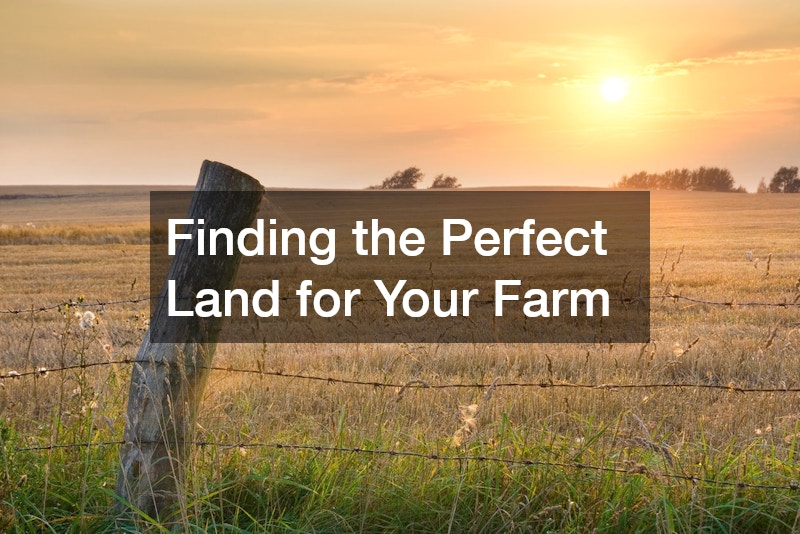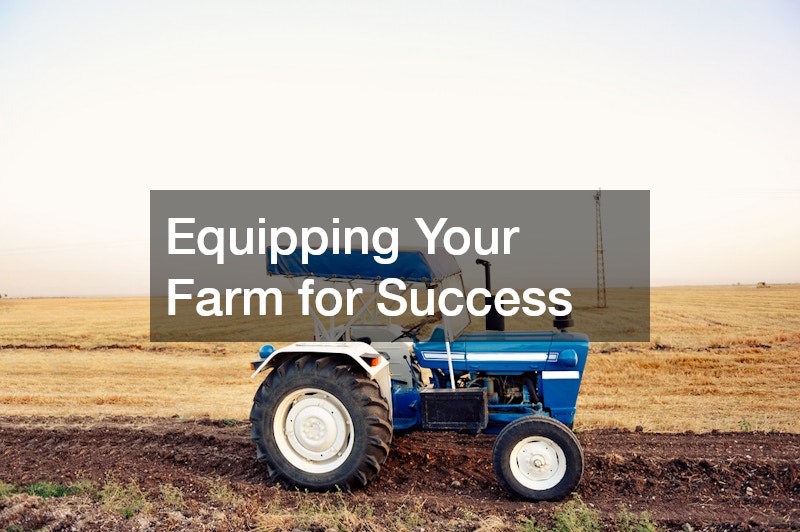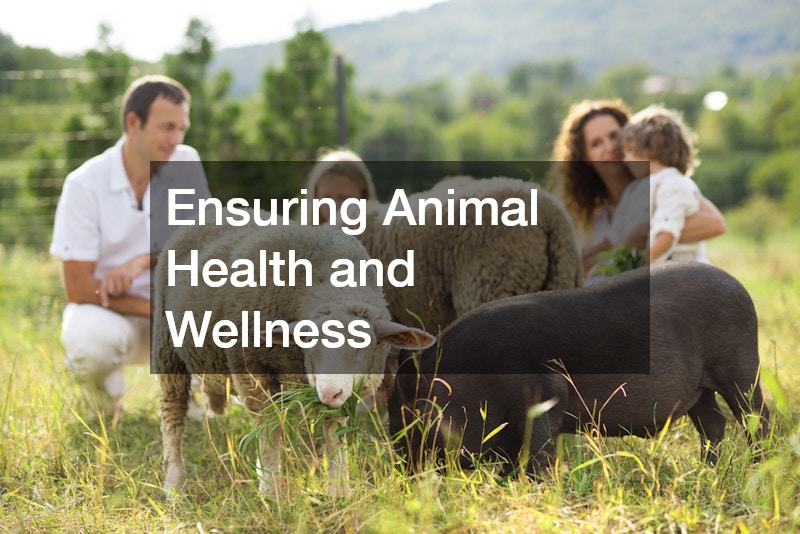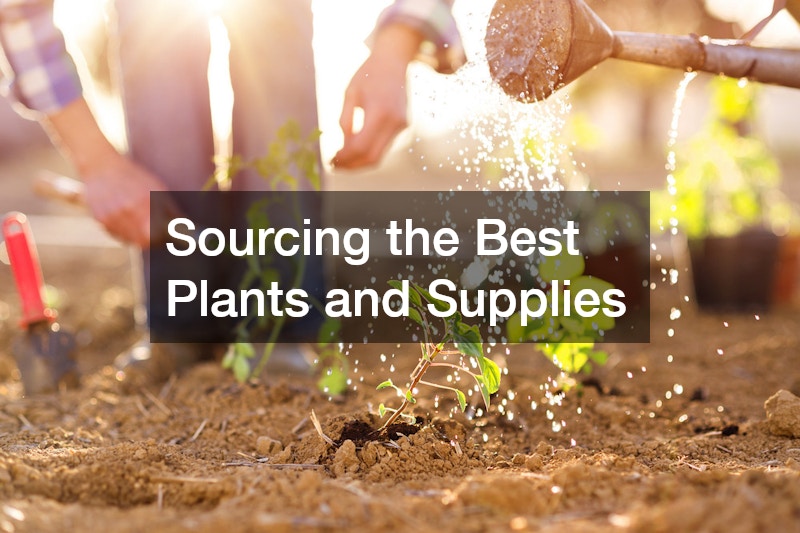
Starting a farm is an exciting venture, but it requires careful planning and organization. Whether you’re cultivating crops, raising livestock, or both, ensuring you have the right resources in place will make all the difference. When it comes to building a successful agricultural business, there are several key farm essentials you’ll need to consider. From the right land and equipment to the proper insurance and support for your livestock, each element plays a critical role in laying a strong foundation for your farm.
As you embark on your farming journey, it’s important to think about the big picture and what will keep your farm running smoothly. Understanding the essential services and tools you’ll need will not only make your start easier but will also set you up for long-term success. In this guide, we’ll cover the must-have resources and services for your agricultural venture, ensuring you’re ready to thrive from day one. When properly prepared, your farm will have the resilience to weather challenges and the capacity to expand when the time is right.
Finding the Perfect Land for Your Farm
One of the most significant decisions you’ll make when starting a farm is selecting the right land. Location plays a huge role in the types of crops you can grow or the livestock you can raise. For instance, factors like climate, soil quality, and proximity to markets are all critical. Exploring commercial land for sale in areas suited to your farming goals is essential in ensuring that your farm can thrive. A location that is both cost-effective and ideal for your specific needs will set you on the path to success.
Land decisions also include water availability and access to transportation routes for the easy movement of goods and supplies. Whether you want flat terrain for crops or hilly land for grazing animals, make sure your land choice suits your farming style. Additionally, consider future expansion and infrastructure needs. This holistic approach to choosing land will help secure a stable future for your farm operations, ensuring your investment pays off in the long term.
In addition to these considerations, be sure to look into local zoning laws, as they can affect how you use the land. Some areas may have restrictions on farming activities, building structures, or operating certain types of equipment. Understanding these regulations early on will help you avoid legal challenges and ensure that your farm can grow without unexpected hurdles. It’s also wise to research the long-term environmental factors of the land, such as flood risk, soil erosion, or pest problems, so you can plan for sustainable farming practices.
Clearing and Preparing the Land for Farming
Once you’ve secured your land, the next step is preparing it for farming. This is where land clearing services come into play. Removing trees, brush, and other obstacles is a vital step in getting your farm ready for crops or livestock. Clearing the land properly ensures that you’re starting with a clean slate, allowing you to set up the farm’s infrastructure without obstacles in the way. In addition to land clearing, it’s important to assess the quality of the soil. This may involve soil testing to ensure it is rich in the nutrients needed for healthy crop growth. Creating drainage systems is another crucial step to prevent waterlogging, especially in areas with heavy rainfall. With the help of professional land clearing services, you’ll not only make your land more productive but also reduce the risk of damage to crops or infrastructure in the future.
Another factor to consider when preparing the land is the type of equipment you’ll need for the clearing process. Depending on the scale of the work, this could involve large machinery such as bulldozers, excavators, or stump grinders. Hiring experts with the right tools and knowledge will ensure that the land is cleared efficiently and safely. Additionally, once the land is cleared, you’ll need to design the layout of your farm, taking into account how to best utilize the space for different crops, pasture, or facilities. Proper planning during this phase can help optimize your farming operations and prevent costly mistakes down the road.
Building Your Farm Structures
No farm is complete without essential structures, such as barns, storage spaces, and shelters for livestock. Working with a pole barn contractor is a smart move when planning your farm’s buildings. Pole barns are durable, cost-effective, and versatile, making them ideal for housing equipment, animals, and supplies. Choosing the right contractor will ensure that your farm structures are built to last, with the space and functionality needed for your farm’s operations. In addition to barns, you may need structures like greenhouses, workshops, and even housing for farm staff. Each of these buildings should be strategically placed to maximize efficiency and reduce labor costs. Proper planning and expert construction will ensure your farm remains organized, secure, and ready to handle the day-to-day demands of farming. These investments will provide the necessary infrastructure to keep your farm operations running smoothly.
As your farm grows, so will the need for additional buildings or modifications. A good pole barn contractor will not only help you create the structures you need now but will also be able to advise on future expansion. They can design buildings that are easy to modify as your needs evolve, ensuring that your farm can scale efficiently without requiring a major overhaul. By investing in solid, functional buildings from the start, you will set up your farm for long-term success, enabling you to handle a variety of tasks with ease and organization.
Equipping Your Farm for Success
Having the right agricultural equipment is crucial for running an efficient farm. Depending on the type of farm you’re starting, you might need tractors, plows, harvesters, or irrigation systems. It’s important to invest in reliable machinery that will increase productivity and reduce labor costs. Researching and purchasing the best equipment for your farm’s needs should be one of the first farm essentials on your list. Properly maintaining this equipment is just as important as acquiring it. Regular service checks, lubrication, and timely repairs will extend the lifespan of your machinery. Additionally, investing in technology like GPS-guided tractors and automatic irrigation systems can streamline operations, saving time and ensuring more precise farming practices. These tools will help improve crop yield, reduce waste, and enhance overall farm efficiency.
Another key consideration when acquiring agricultural equipment is deciding whether to purchase new or used machinery. While new equipment often comes with warranties and the latest technology, used equipment can offer significant cost savings, especially for farmers just starting out. However, when buying used, it’s essential to thoroughly inspect the equipment to ensure it’s in good condition and won’t require expensive repairs down the line. No matter the choice, maintaining a mix of equipment that suits your specific needs will help ensure your farm is set up for both short-term success and long-term sustainability.
Enhancing Soil Health for Maximum Yield
Healthy soil is the foundation of a successful farm. To ensure your crops thrive, you’ll need to enrich your soil with nutrients. Using bulk organic fertilizer is an excellent way to promote soil health while also being environmentally conscious. Organic fertilizers improve the soil structure, increase its water retention, and provide essential nutrients for plants. This will help your crops grow strong and yield abundant harvests. It’s also important to integrate sustainable practices like crop rotation and no-till farming to preserve the long-term health of your soil. These farm essentials are integral for preventing soil degradation, improving biodiversity, and maintaining ecosystem health. By nurturing the soil, you not only protect your immediate harvests but also create a foundation for a long-lasting and sustainable farming operation.
In addition to fertilization, regularly testing your soil’s pH and nutrient levels can help you understand exactly what it needs for optimal growth. Soil testing kits are widely available and offer a simple way to assess nutrient deficiencies. By addressing these deficiencies with the right amendments, you can avoid the overuse of fertilizers, which may harm the environment. Soil health is a continuous effort, and regular care and attention to its needs will pay off in the form of higher yields and healthier plants year after year.
Protecting Your Crops With the Right Insurance Plan
Every farm owner needs to consider a crop insurance plan to protect their investment. Weather-related events, pests, and diseases can all threaten your crops. A comprehensive insurance plan provides a safety net, ensuring that you don’t face financial ruin if disaster strikes. Crop insurance can cover a range of issues, from poor yields to damage caused by natural disasters. Additionally, insurance is vital for safeguarding your farm’s machinery, buildings, and livestock. A well-structured insurance plan tailored to your farm’s specific needs offers peace of mind, allowing you to focus on running your business without worrying about potential losses. This financial protection is one of the key farm essentials that can help you maintain stability even in the face of unexpected challenges.
It’s important to work with an experienced insurance provider who understands the unique risks associated with farming. Each farm is different, and the type of crops, livestock, and equipment you have will influence your insurance needs. By discussing your specific situation with a knowledgeable agent, you can ensure that your policy covers the right areas, whether it’s protecting against drought, flood, or pest infestations. Taking the time to review your crop insurance plan regularly will help ensure that your coverage evolves as your farm grows.
Ensuring Animal Health and Wellness
If you plan to raise livestock, having a local veterinarian is crucial to ensuring their health and well-being. Regular check-ups, vaccinations, and preventative care are all necessary to keep your animals healthy. A trusted veterinarian can also help with emergency care when unexpected issues arise, offering peace of mind and preventing costly health problems in the future. Aside from veterinary care, ensuring proper nutrition and housing for your animals is equally important. Providing clean, dry bedding and adequate space for movement are some of the other farm essentials you should prioritize. A well-cared-for herd is more productive, and investing in their health will pay off through increased production and reduced veterinary bills over time.
Another consideration is the ongoing management of your animals’ health. Keeping detailed records of their medical history, including vaccinations and treatments, will help you track their health over time and identify any recurring issues. This information is invaluable when making decisions about herd management and when seeking advice from your veterinarian. Additionally, you may want to explore specialized services such as reproductive health care or disease prevention programs to further enhance the well-being of your livestock.
Transporting Livestock Safely and Efficiently
Transporting livestock is an important part of farm management, whether it’s moving animals to market or between different farm locations. Finding a reliable livestock trailer sale is one of the farm essentials you’ll need for safe and efficient transport. A good trailer ensures the safety and comfort of your animals while reducing the stress associated with travel. Choosing a high-quality trailer designed for livestock is key to protecting your animals during transport. In addition to a good livestock trailer, it’s essential to have a plan for transporting animals. Ensuring proper loading, providing adequate space, and using appropriate handling techniques are all critical factors in safe livestock transportation. A reliable trailer is just one part of a well-thought-out transportation strategy that ensures your animals reach their destination in the best possible condition.
When selecting a trailer, it’s also important to consider factors such as the size and number of animals you’re transporting, the distance, and the frequency of trips. Larger farms may need multiple trailers or specialized equipment, like climate-controlled units, to accommodate the specific needs of their livestock. Regular maintenance of your trailer is also essential to ensure its continued safety and effectiveness. By investing in quality transport equipment and planning ahead, you can ensure that your livestock arrives safely and comfortably, supporting the overall efficiency and success of your farming operations.
Working With Professionals for Your Farm’s Finances
Running a farm involves a great deal of financial management, from tracking expenses to filing taxes. Working with an accounting firm can ensure that your finances are in order. A professional accountant can help you with budgeting, managing cash flow, and maximizing your deductions. They can also help with tax planning and filing, saving you time and ensuring you stay compliant with agricultural tax laws. Farm essentials also include keeping track of investments and expenses related to your farm’s operations. An accountant can help you analyze your farm’s financial health, allowing you to make informed decisions that will benefit your farm’s growth. With professional financial guidance, you’ll be able to focus more on running your farm and less on managing the numbers. Proper financial management will give you the insight needed to make strategic decisions that ensure long-term profitability.
In addition to managing day-to-day expenses, accountants can assist with long-term financial planning. They can help you assess whether you need loans or other forms of financing to grow your farm, as well as guide you on how to structure those finances for the best outcomes. Regular financial check-ups will ensure that your farm remains financially sustainable and can adapt to changing markets or unexpected challenges. A trusted accountant will help you stay organized and ready for anything, contributing to the overall health and longevity of your farming business.
Sourcing the Best Plants and Supplies
A local garden center can be a great resource for sourcing plants, seeds, and other supplies for your farm. Whether you’re looking for fruit trees, vegetable seedlings, or flowers, a garden center can provide you with the best options for your area’s climate. Additionally, local garden centers often offer expert advice on plant care and pest management, which can be valuable as you get started with your farm. Farm essentials also include soil amendments, gardening tools, and irrigation equipment that will help your plants thrive. Building a relationship with a local garden center not only gives you access to high-quality products but also connects you to a community of experts who can offer advice and recommendations based on local growing conditions. This partnership can make a significant difference in the success of your farm.
Starting a farm is a rewarding and challenging endeavor. With the right resources and a well-thought-out plan, you can turn your agricultural venture into a thriving business. From choosing the right land and clearing the property to sourcing supplies and maintaining animal health, each of these farm essentials is crucial to your success. By investing in the right equipment, services, and professionals, you’ll be on your way to building a farm that is both sustainable and profitable. When you have the essential tools, support, and expertise in place, your farming journey becomes much more manageable. With careful planning and a focus on the right farm essentials, you’ll be well on your way to running a successful operation for years to come.




